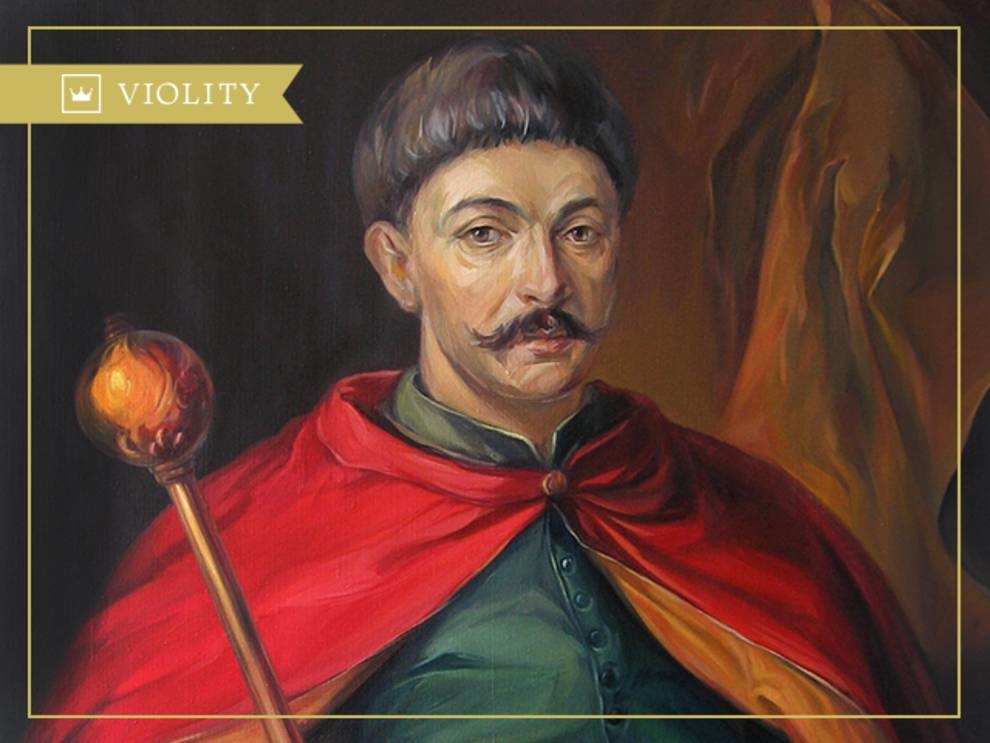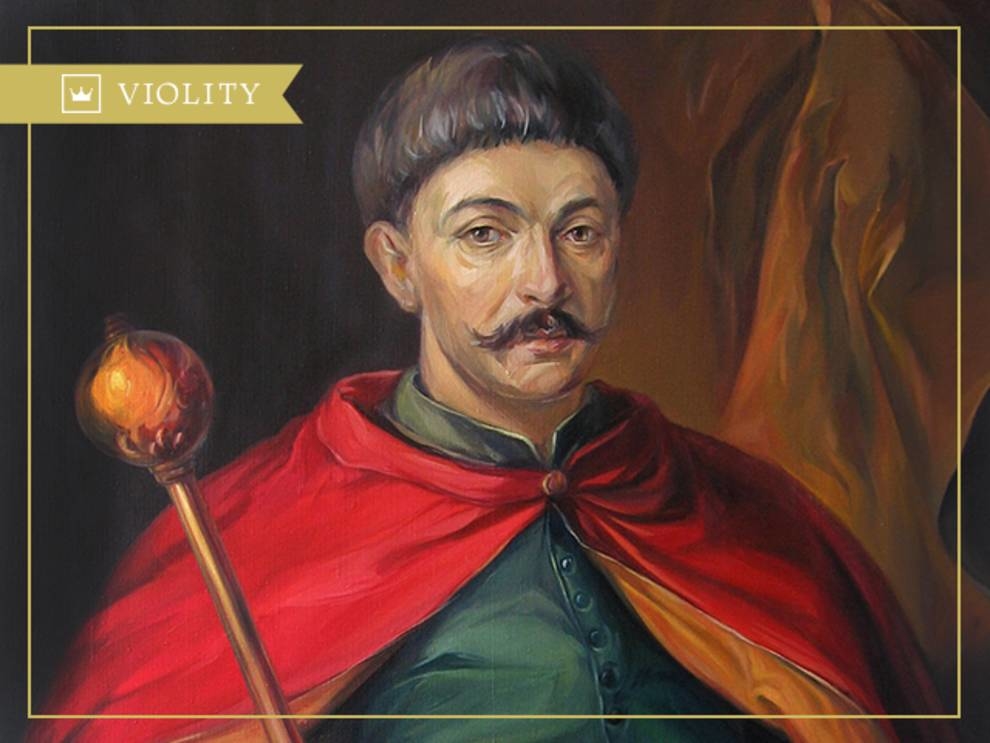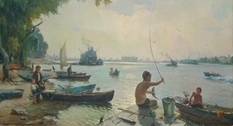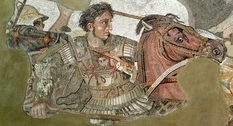
Ivan Vyhovsky - Hetman of the Zaporozhian Troops
Ivan Vyhovsky was elected hetman of the Zaporozhian Army at the Korsun Rada in 1657. He inherited a worsening of relations with Moscow and the strengthening of its interference in Ukrainian internal affairs. This prompted Vyhovsky to seek compromises with the Polish-Lithuanian Commonwealth, which led to the creation of an anti-Hetmanite opposition of a part of the Cossack sergeant.
The epicenter of the struggle for power in the Hetmanate became Poltava and Zaporizhia. Cossacks under the leadership of Martin Pushkar and Jacob Barabash opposed Vyhovsky. After an unsuccessful attempt at reconciliation, the hetman's troops defeated them in 1658 near Poltava.
Having come to the conclusion that the opposition is supported by Moscow, Vyhovsky abruptly changed politics. In the spring of 1658, he concluded the Hadiach Treaty with the Polish-Lithuanian Commonwealth. On its basis, Ukraine (under the name of the Grand Duchy of Russia) should be part of the Polish-Lithuanian Commonwealth as an equal member of the confederation with the Crown of Poland and the Grand Duchy of Lithuania.
But this quickly caused a popular uprising against Vyhovsky. A union with a state that had long dominated Ukraine was considered impossible by the people. And the Polish-Lithuanian Commonwealth itself did not intend to abide by the agreement, although the Hadiach Treaty was ratified by the Polish-Lithuanian Commonwealth.

In Ukraine, a new wave of opposition speeches has risen, which has made its leader the youngest son of Bogdan Khmelnitsky - Yuri. Although the latter was still quite young, experienced colonels Ivan Bohun, Ivan Sirko, Yakim Somko and others stood behind him.
The war on two fronts, and even civil ones, Vyhovsky could not stand it and, not wanting further bloodshed, folded the mace. Yury Khmelnitsky was chosen to take his place.
The former hetman moved to Volyn, which was then under the control of the king, and received at the behest of the last Barsky eldership. He was a senator of the Commonwealth and Kiev voivod. He settled in Bari on Podolia, where his wife with his young son Ostap subsequently escaped from Chigirin.
When Dmitry Sulimka, the leader of the uprising on the Right Bank, was captured, some traces led to Vyhovsky, who sympathized with the rebels. He was arrested and deprived of all the rights and privileges that he had in connection with the senatorial title. Without any court and investigation, even without royal knowledge, the former hetman was sentenced to death.
When they came for him to lead him to be shot, he read an akathist to the Most Holy Theotokos. The sentence was executed in the village Rakitnom, Kiev region. The former hetman and his wife were buried, as the Chernigov chronicle testifies, in Bolshaya Skit, but there are certain doubts about the authenticity of this.
The epicenter of the struggle for power in the Hetmanate became Poltava and Zaporizhia. Cossacks under the leadership of Martin Pushkar and Jacob Barabash opposed Vyhovsky. After an unsuccessful attempt at reconciliation, the hetman's troops defeated them in 1658 near Poltava.
Having come to the conclusion that the opposition is supported by Moscow, Vyhovsky abruptly changed politics. In the spring of 1658, he concluded the Hadiach Treaty with the Polish-Lithuanian Commonwealth. On its basis, Ukraine (under the name of the Grand Duchy of Russia) should be part of the Polish-Lithuanian Commonwealth as an equal member of the confederation with the Crown of Poland and the Grand Duchy of Lithuania.
But this quickly caused a popular uprising against Vyhovsky. A union with a state that had long dominated Ukraine was considered impossible by the people. And the Polish-Lithuanian Commonwealth itself did not intend to abide by the agreement, although the Hadiach Treaty was ratified by the Polish-Lithuanian Commonwealth.

Photo © uk.wikipedia.org
In Ukraine, a new wave of opposition speeches has risen, which has made its leader the youngest son of Bogdan Khmelnitsky - Yuri. Although the latter was still quite young, experienced colonels Ivan Bohun, Ivan Sirko, Yakim Somko and others stood behind him.
The war on two fronts, and even civil ones, Vyhovsky could not stand it and, not wanting further bloodshed, folded the mace. Yury Khmelnitsky was chosen to take his place.
The former hetman moved to Volyn, which was then under the control of the king, and received at the behest of the last Barsky eldership. He was a senator of the Commonwealth and Kiev voivod. He settled in Bari on Podolia, where his wife with his young son Ostap subsequently escaped from Chigirin.
When Dmitry Sulimka, the leader of the uprising on the Right Bank, was captured, some traces led to Vyhovsky, who sympathized with the rebels. He was arrested and deprived of all the rights and privileges that he had in connection with the senatorial title. Without any court and investigation, even without royal knowledge, the former hetman was sentenced to death.
When they came for him to lead him to be shot, he read an akathist to the Most Holy Theotokos. The sentence was executed in the village Rakitnom, Kiev region. The former hetman and his wife were buried, as the Chernigov chronicle testifies, in Bolshaya Skit, but there are certain doubts about the authenticity of this.


